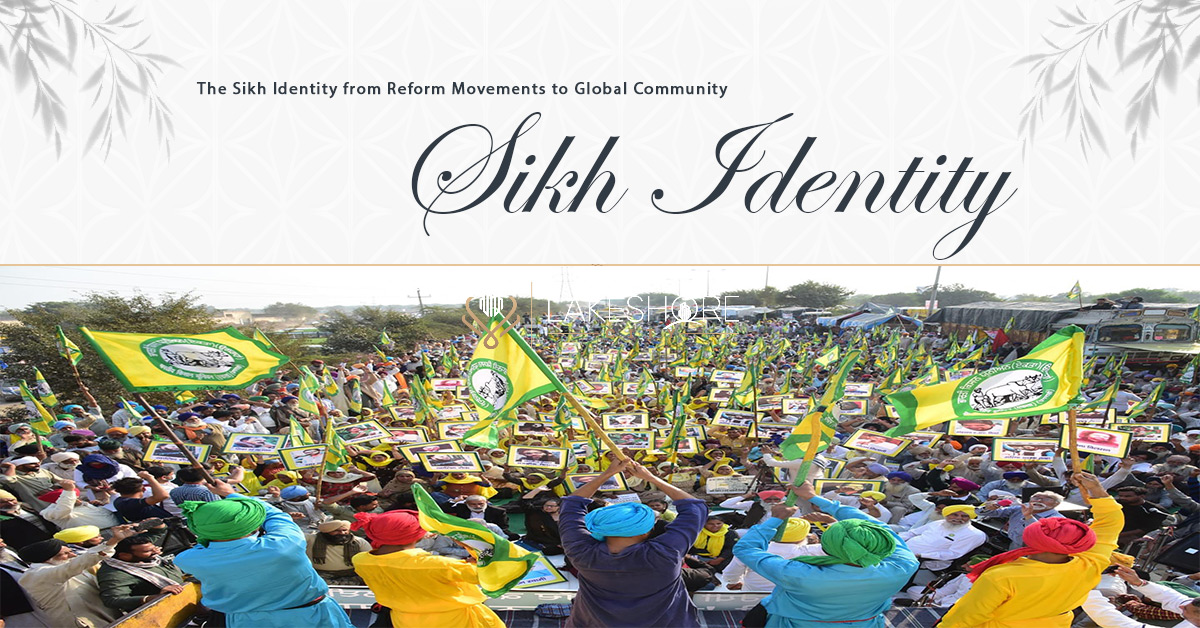Sikh reform movements began to gain traction in the 19th century. There were the Nirankaris, who disagreed with the Khalsa’s political goal and instead reemphasized the early Sikhs’ emphasis on the formlessness of the Divine and their rejection of ritual. The Namdharis were Sikhs who believed that religious rituals should be kept simple and should instead center on the recital of the holy Name. Khalsa College was founded in 1892 in Amritsar, and a college for women was founded in 1894 in Ferozepur, as part of the Singh Sabha Movement, which advocated for both Sikh and Western education at the turn of the century. Sikh identity was also highlighted by the Singh Sabha as being unique and separate. Gurdwaras were taken back from Hindu administrators known as mahants, and Hindu images were taken down from several of the temples.
In 1925, the Sikh Gurdwaras Act centralized the administration of gurdwaras under the control of designated Sikh authorities and established the definition of a Sikh as “one who believes in the ten gurus and the Granth Sahib.” The Sikhs began codifying the Rahit Maryada, a set of rules for personal and community conduct that was eventually adopted in the 1930s.
Most Sikhs were living in Punjab at the time of India’s partition into India and Pakistan in 1947. After Pakistan was formed out of a portion of the Punjab, almost 2.5 million Sikhs migrated to India. Some Sikhs had wanted their independent state in the Punjab before partition. In the 1980s, the call for Khalistan, a country ruled by the Khalsa, grew louder than ever. When the Indian army attacked the Golden Temple and 37 other Sikh temples across Punjab on the day honoring the martyrdom of the fifth guru, Guru Arjan, in 1984, tensions between Sikhs and the central government erupted. According to official Indian reports, authorities planned to clear away separatists holed up in one of the Golden Temple’s buildings.
Sikhism is now a truly global faith. East and South Africa, Singapore, Hong Kong, the United Kingdom, and the United States all have sizable Sikh populations. In general, Sikhs are enthusiastic contributors to their host societies. The Sikh community is highly active in interfaith groups and forums. Sikhs, on the other hand, have a tight-knit community with a robust sense of self that makes it difficult for them to blend in. Sikhs have a deep attachment to their faith, yet they also respect and avoid proselytizing for the faiths of others.
Our Featured Article:
Read More: Spruced Up Gurdwara Darbar Sahib Set to Welcome Sikh Pilgrims From Around the World
Don’t miss the chance to invest with Lakeshore! Secure your investment today by investing your financial investment with Lakeshore in the following available options like Lakeshore City, Lakeshore Club, and Lakeshore Farms.
For More updates, please Contact +92 335 7775253 or visit our website https://lakeshorecity.com/
Lakeshore City is the upcoming elite lifestyle at Khanpur Dam. Offering no parallel amenities for the members and owners of distinguished farmhouses.
Become Part of Luxurious Lifestyle
Contact: 0335 7775253
